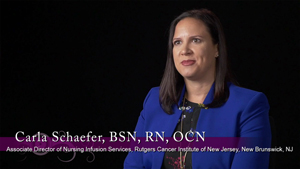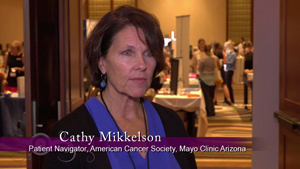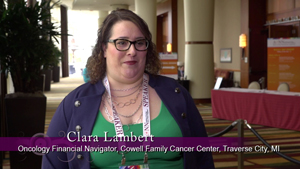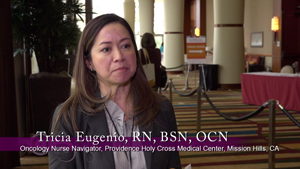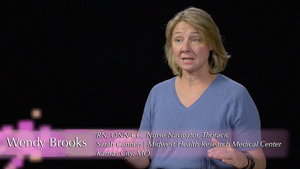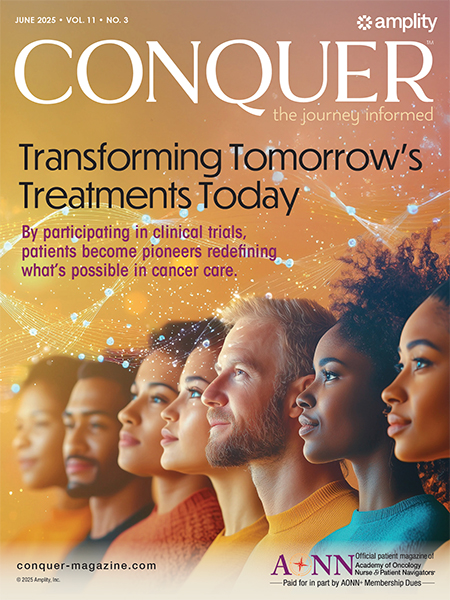Patient FAQs
Carla Schaefer notes that patients often have as many concerns post-treatment as they do during treatment, and she explains how she helps alleviate their anxiety as they move into survivorship.
Video Library published on February 20, 2018 in Patient FAQs, Psychosocial Support Services/Assessment
Carla Schaefer outlines how she begins a conversation with a new patient who has just received a cancer diagnosis and explains how she answers the many questions they have throughout treatment.
Cathy Mikkelson cites that financial toxicity is the most common concern her patients have, and she explains how she addresses this issue.
Video Library published on September 13, 2017 in Patient FAQs
One of the most common questions Clara Lambert hears from her patients is, "How much will this cost?" Watch to hear her answer to this question.
Video Library published on September 13, 2017 in Patient FAQs
Tricia Eugenio is often asked what she does, and she goes on to explain how she answers this question for her patients.
Video Library published on June 30, 2017 in Patient FAQs
Wendy Brooks reviews some of the most common questions she hears from patients and explains how she addresses them.
This happens nearly every day, doesn’t it? A newly diagnosed patient with cancer wants to know the odds of living through and beyond his or her cancer treatment. It doesn’t matter if we tell patients that we hope they live a long time and not to focus on stats; they focus on them anyway. But when it comes to statistics, there are some important facts for nurse navigators to consider.
Articles & White Papers published on October 31, 2013 in Patient FAQs
As part of our responsibility as navigators, we are expected to not just know the standards of care but also remain up to date on cutting-edge research that has recently been published. We are also confronted with patients or their loved ones who have spent hours on the Internet visiting many websites—some credible academic websites and others bogus websites that may look credible but aren’t—and they assume that any new research found on the Internet related to the type of cancer they have or even in a magazine for that matter is valid and is suddenly the new standard of care.
Page 2 of 2
Results 11 - 18 of 18
Results 11 - 18 of 18
Thank You to Our Corporate Sponsors and Alliance Partners!

Major Corporate Sponsor

Patron Corporate Sponsor

Patron Corporate Sponsor

Patron Corporate Sponsor

Industry Relations
Council Member

Industry Relations
Council Member

Industry Relations
Council Member

National Alliance Partner

National Alliance Partner

National Alliance Partner

National Alliance Partner

National Alliance Partner

National Alliance Partner
Privacy Notice | Terms of Use
© 2009- DBA AONN+ Academy of Oncology Nurse & Patient Navigators® | PO Box 357387, Gainesville, FL 32635-7387 |
AONN+ DBA AONN+ is a 501(c)(6) organization under federal tax guidelines. AONN+ Foundation for Learning, Inc. a 501(c)(3) organization under federal tax guidelines.
AONN+ Advantage, LLC, a wholly owned subsidiary of AONN+.

